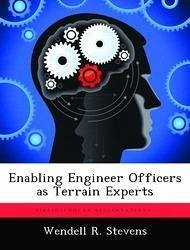Terrain is a permanent and important aspect of all military operations. Today, the military study of terrain is called geospatial engineering, and it is the responsibility of engineers to maximize its effect for the tactical echelons of the Army. Engineer officers are the commanders' terrain experts armed with distinct skills, knowledge, and behaviors (tasks). From a review of doctrinal, historical, anecdotal, and periodical sources, seventy-three essential geospatial tasks emerged. These tasks cover the geospatial engineering functions found in the Army Universal Task List in Field Manual 7-15 and support a definition for the terrain expert role. Forty-nine of the seventy-three tasks are taught in an institutional setting at the US Army Engineer School and the National Geospatial and Intelligence School. Recommendations are provided on how to improve training for these tasks and for the twenty-four tasks not yet taught. A five-step geospatial engineering process is also recommended to facilitate officer proficiency and application of geospatial engineering. Finally, several other geospatial engineering considerations are provided for further research into the conceptual skills required for terrain visualization and expertise.
Hinweis: Dieser Artikel kann nur an eine deutsche Lieferadresse ausgeliefert werden.
Hinweis: Dieser Artikel kann nur an eine deutsche Lieferadresse ausgeliefert werden.








